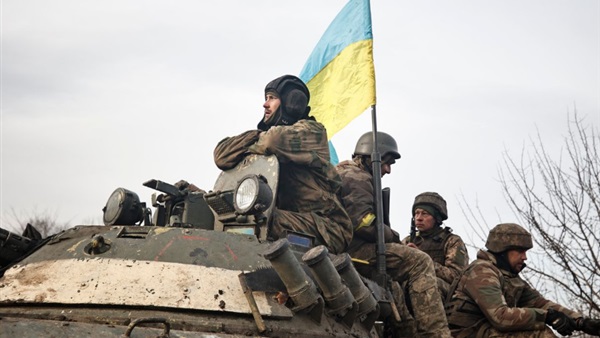Russia Expands Shelling of Kherson, as Power Shortages Drag On in Kyiv

Russian forces have stepped up their shelling of the southern city of Kherson, killing 10 people and injuring at least 54 others in the latest round of strikes, according to local officials.
Two weeks have passed since Russian troops retreated from Kherson, and residents—though still joyous at their liberation from Russian occupation—are confronting a new set of challenges. The city, like much of Ukraine, remains without electricity, heat or running water. Cell signal is weak. Tents offering heat, water and internet access have been set up around the city.
Now shelling from Russian positions across the Dnipro River is quickly becoming part of daily life, a contrast from the first nine months of the war, when Kherson had survived largely intact after being seized in the first days of the invasion. Pops of outgoing Ukrainian artillery fire also echo through the streets during the day.
Yaroslav Yanushevych, the governor of the Kherson region, said a residential area was hit by Russian artillery and antiaircraft fire around 5 p.m. on Thursday, setting a high-rise building on fire. A children’s playground was also hit, he said.
“Another terrible page in the history of our city,” he wrote on Telegram late Thursday. He added that Kherson desperately needed power generators, building materials, fuel and firewood.
Ukrainian President Volodymyr Zelensky said he had received reports of shelling in the Kherson region almost every hour. A line of cars at least a mile long headed out of the city on Friday. Ukrainian officials have encouraged civilians to relocate to other parts of the country or abroad for the winter.
“This is the revenge of those who lost,” Mr. Zelensky said in his nightly video address on Thursday, referencing the Russian retreat from Kherson. “They do not know how to fight. The only thing they can still do is terrorize.”
ATB, a Ukrainian supermarket chain that was renamed and filled with Russian products during the occupation, reopened in Kherson this week. Hundreds of people lined up outside to buy Ukrainian products again.
Elsewhere, Ukraine continued to reel from the latest round of Russian missile strikes on its infrastructure on Wednesday. Power outages in 15 regions of the country had created problems for the heat and water systems, Mr. Zelensky said. Almost the entire country was short of electricity, he added.
ArcelorMittal Kryvyi Rih, one of the country’s largest steel companies, suspended production due to the power outages.
Kyiv, the capital, was among the hardest-hit areas. Much of the city lost power for nearly two full days before the lights flicked on again early Friday. Residents leaned out the windows and shouted, “Slava Ukraini,” or “Glory to Ukraine,” when the power returned.
Dmytro Saharuk, the executive director of DTEK, one of the largest power companies in the Kyiv area, told Ukrainian media that electricity would start to return for residents of the capital as utility crews worked to restore damage to the power grid. Each home would likely get only two or three hours a day to begin with.
Nuclear plants, which were knocked offline by Wednesday’s missile strikes, are also now being reconnected to the power grid, according to Energoatom, Ukraine’s nuclear-energy company.
“We will switch on the lights little by little,” Mr. Saharuk said to local media, “until the amount of electricity supplied to Kyiv is increased.”
Ukrainian energy officials have said that service would improve quickly as long as no further damage is inflicted on the power grid.
The Vatican, meanwhile, released an open letter from Pope Francis to the Ukrainian people marking nine months of war, though, as usual, he didn’t name Russia as the aggressor. He did, however, compare the ordeal facing the Ukrainian people with what he called “the terrible genocide of the Holodomor,” the 1930s terror famine inflicted on the country by Soviet dictator Joseph Stalin, an analogy he made earlier in the week.
Pope Francis, who has stressed the need for peaceful settlement to the conflict, also made a rare reference to Ukraine’s right to self-defense, addressing Ukrainian “young people, who in order to courageously defend your homeland had to take up arms rather than the dreams you had nurtured for the future.”





